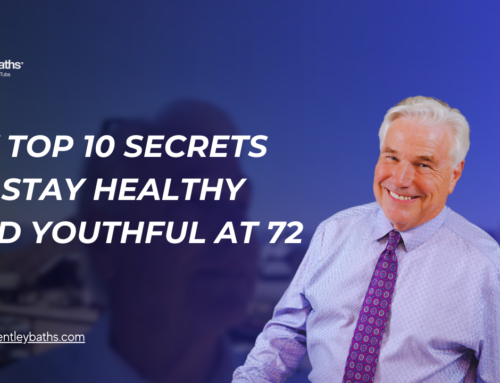Introduction
I’m going to share with you the basic environments that we have available to us to live and then eventually die. The options for living until the end of life. And I know it sounds a little morbid, but I’m telling you, we need to be thinking about where do you want to die. What do you want your lifestyle and your environment to be like at that point when you transition out of this life?
My mom died in a nursing home. She was there because of a preventable accident. She fell in the bathtub and broke her hip. And we lost control of her aging process because of those injuries and the consequences. When my mom died in the nursing home, my dad said to me, George, I’ll never go into a nursing home. I want you to help me stay right here and live in my home.
I have learned over the past nearly 20 years that it’s continuing education. It is continuing to learn and teach ourselves what our options are and what’s necessary to make us happy. There’s no one right answer for everyone.
But I will tell you that 98% of the thousands of people that I’ve interviewed over the last 20 years, their adult children and their caregivers, virtually every one of them says, I want to live and die in my own home. So these are the options for living until the end of life:
Aging in place.
That is the idea of my dad and my mom had of living and dying in the family home and staying there for the rest of their life. Very important to people that by necessity means we must make sure that home has been modified to accommodate living and staying there safely until the day we passed.
Age-restricted communities.
These tend to be also independent living environments where people own their own unit, that sort of thing. And the community does not necessarily provide any kind of medical assistance or health care. They may have some community service-type things in. The pain of living is similar.
But in that case, you’re in a community of people, of older adults, and you’re taking advantage of meals, educational, social activities, things of that nature. It’s kind of it’s on a continuum there, and that’s a step more towards having the community provide a few more services.
Continuing care, retirement communities, they’re called CCRC. These are communities that have a spectrum of health care and assistance available. So the idea is if somebody moves into one of these communities, they may be totally independent.
They may need a little bit of assistance at some point that can be provided and they can have some level of skilled care in that type of community.
Assisted living.
Assisted living is another step further down the spectrum. Assisted living means that you’re in a facility where now you’re having problems with your activities of daily living. I can bring somebody.
I could have brought somebody into my dad’s home to take care of him and he could have stayed there. We could have just assisted him with the ADLs. That means activities of daily living that he specifically needed help with, and other than that, he lived independently.
There are communities and facilities that are specifically designed to provide these lower levels of assistance and as much independence as possible.
Nursing home facilities.
There’s nursing home and skilled nursing home facilities. And let me tell you something. I had somebody at one point suggested I was anti-nursing home. And I want to clarify that forever.
I am absolutely, positively not anti-nursing home. I’m so grateful. They’re amazing. And if I need 24/7 skilled care, thank God we’ve got the nursing homes with the quality of care that we have available to us.
The issue is we have way too many boomers and their parents who are being forced into nursing homes because we’ve injured ourselves or we’ve gotten ourselves ill or we’ve deteriorated to a point where we need 24-hour medical care.
The bottom line of my message is to be proactive. Start thinking about it. Decide where you want to die. Plan how you want to live out the rest of your life and then start taking action. Please feel free to call us. Get on my schedule, email us whatever it is. Remember, I love questions.








